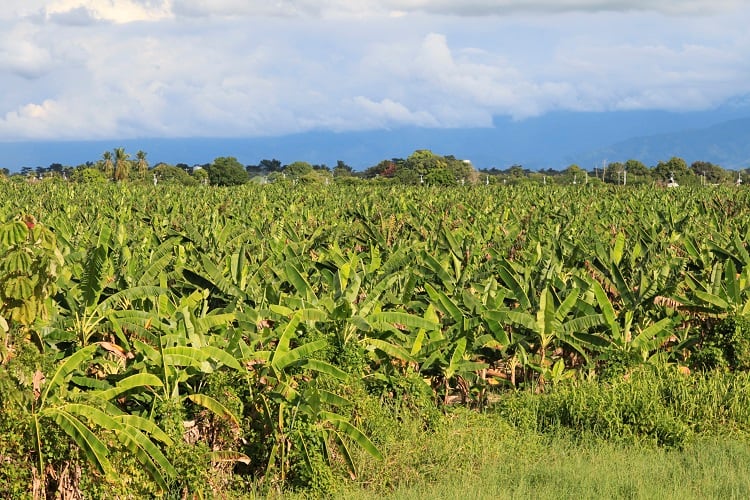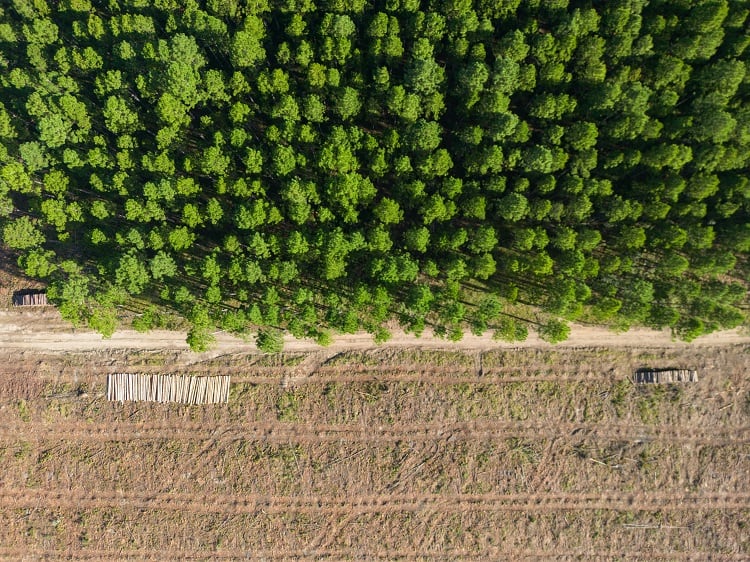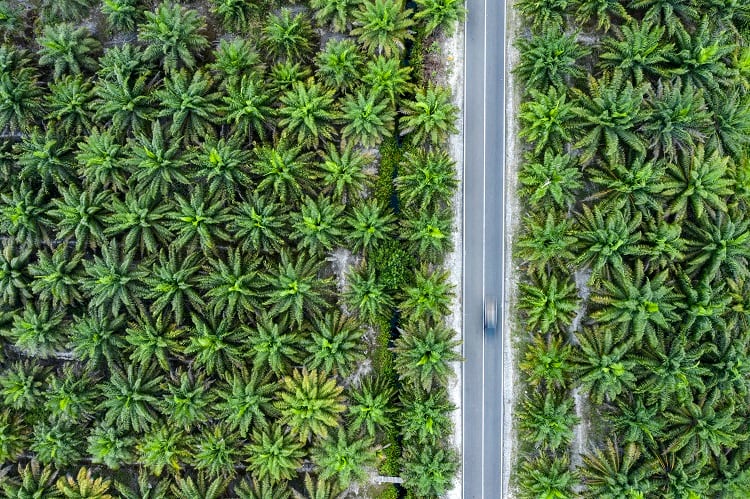Soy, cocoa, coffee, palm oil – many agricultural commodities are linked to negative environmental impact. The European Union has in the past been criticised for offshoring its environmental impacts to developing countries, from which it buys a range of such agricultural commodities.
The EU, as a large market for these commodities, thus has a certain level of leverage over producer countries’ efforts to reduce environmental impacts such as deforestation and improve the sustainability of the way they’re produced.
How much leverage does the EU have in crop production?
A recent study explored the relevance of a range of agricultural commodities to the EU – including how significant these imports are to the EU’s environmental footprint and performance in terms of ‘Policy Coherence for Development’ (PCD). It also explored the leverage the EU has over producer countries – how much of said country, or a said country’s exports of a crop, are sent to the EU, and thus how much influence the EU has over the market there.
The most important crops for the EU, in terms of both relevance and leverage, were found to be soybeans, palm oil, cocoa and coffee. Other crops with high relevance and above median leverage included raw sugar, bananas, grapes, rubber and tobacco. Crops with lower relevance and leverage were rice, maize, oranges, rapeseed, sunflower seed and wheat.
In terms of countries, the most relevant were Brazil, Argentina, and Indonesia, who also had above median leverage values.
Many countries specialise in one or a few commodities, such as cocoa and coffee (Ghana, Côte d'Ivoire, Cameroon, Congo, Togo, Uganda, Nigeria, Peru, Ecuador, Colombia, Costa Rica, Vietnam, and Honduras), sugar (Bahamas, Mauritius, Barbados, Fiji, Eswatini, Guyana), Mediterranean fruits and vegetables (Morocco, Egypt, Turkey, Tunisia) and grain (Russia, Belarus, Serbia, Ukraine, Moldova and Kazakhstan). Some ‘generalist’ countries have a range of exports with no single commodity dominating, such as India, Chile, Thailand, China and South Africa.

While for those specialising in one or a small handful of commodities, the EU has significant leverage, for those large ‘generalist’ countries the EU’s leverage is significantly lower.
How can the EU contribute to the sustainability of agricultural crops?
While the EU imports a range of agricultural commodities from developing countries, some of these have a greater negative impact than others. For example, soybean and palm oil imports alone contribute to 33.2% of the EU’s imported footprint and 66.1% of the EU’s contribution to global deforestation.
The EU, with its leverage over the markets of so many of these crop producers, does have power. It can, suggested the study, reduce its demand for those products with the most significant ecological costs. In the case of soy, for example, the study suggests reducing its use as animal feed by reducing the livestock industry itself and accelerating the move towards a plant-based diet. The authors claim claims this would be a ‘win-win’ because it will not only have environmental benefits but health benefits as well.
Other suggestions made by the study include the introduction of a carbon tax; using the EU’s due diligence measures, such as the newly passed CSDDD, to regulate agricultural sustainability; and recalibrating its trade policies to encourage sustainable crop cultivation.
“Trade agreements are an important driver for sustainable growth both in the EU and in partner countries. Modern EU trade agreements contain rules on trade and sustainable development,” Olof Gill, European Commission spokesperson for trade and agriculture, told FoodNavigator.

The study also criticises preferential trade agreements for sugar-exporting countries, saying that it makes them reliant on a single crop, and recommends instead collaboration in developing a diversified yet sustainable agricultural portfolio within these countries.
The need for collaboration
One issue with the EU reducing its imports of the most ecologically problematic commodities is that other markets could pick up the slack. For example, regulations in the past have often simply meant producers finding other markets, rather than the reduction of deforestation. There are concerns that the upcoming EUDR could result in such an eventuality.
“The EU will not win the fight against climate change by acting alone. In order to succeed, it is important to promote the understanding among our partners that the green transformation is not only a necessity in the medium term, but already constitutes smart economic policy today,” Gill told us.
What is PCD?
The EU and its member states are committed to Policy Coherence for Development (PCD), aiming to take development into account when drawing up policy.
“The EU needs to leverage its openness and engage its partners, notably the biggest emitters and polluters, so that they contribute their fair share to climate change mitigation.”
The EU is already aiming to work with external countries in order to make agriculture more sustainable. For example, it funds the ‘Food Systems Assessments’, an initiative, also funded by the FAO and CIRAD, which covers 50 countries that aims to improve their food systems through collaboration; and it also held its fifth Agriculture Ministerial Conference with the African Union (AU) in June 2023, which discussed sustainable investment in agri-food systems and building climate resilient food systems, and announced the establishment of a EU-AU Joint Task Force on Fertilisers.
Along with other markets, the EU aims to collaborate with exporting countries themselves to ensure that the requisite changes in agricultural techniques do not drastically impact farmer livelihoods. For example, Gill told us, its Sustainable Cocoa Initiative aims to strengthen forest and child labour monitoring systems alongside its transformation of agricultural practices.
Sourced From: One Earth
'Prioritizing partners and products for the sustainability of the EU’s agri-food trade'
Published on: 19 April 2024
Doi: https://doi.org/10.1016/j.oneear.2024.03.002
Authors: Y. Zinngrebe, J. Berger, C. Bunn , M. R. Felipe-Lucia , N. Graßnick, T. Kastner, G. Pe’er, C. Schleyer, S. Lakner


